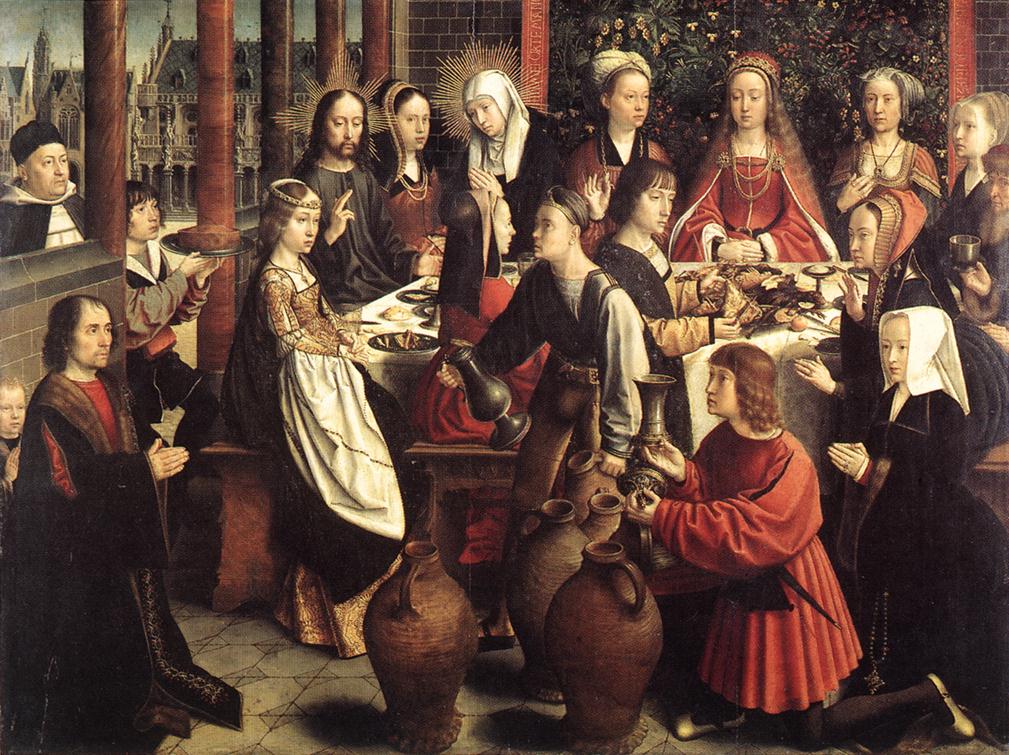
Drinking in of itself isn’t evil. In fact, at the wedding at Cana Jesus turned water not just into wine but good wine. It was even his first miracle. If drinking was a sin would Jesus have enabled it? No. That being said, it can be sinful. There is one keyword that must be remembered when drinking alcohol. Discernment. There are two main points you must discern.
Firstly, what are your personal limits? The church teaches “The virtue of temperance disposes us to avoid every kind of excess: the abuse of food, alcohol, tobacco, or medicine. Those incur grave guilt who, by drunkenness or a love of speed, endanger their own and others’ safety on the road, at sea, or in the air.” ¹ Alcohol is not a sin but when in excess it crosses a line. There are two types of excess.
The first kind is the kind that impairs your judgment. In the words of G.K. Chesterton “We should thank God for beer and burgundy by not drinking too much of them.” ² When drunk in excess alcohol impairs our judgment and in extreme cases acts as a deadly poison.
According to an ARDI study an average of 178,000 deaths each year are attributed to overdrinking each year. According to AmericanAddictionCenters “up to 86% of homicide offenders, 60% of sexual offenders, and 57% of men involved in marital violence were drinking at the time of the offense”. ³A study conducted by the Department of Transportation found that about 28% percent of traffic related deaths in 2019 were attributed to drunk driving. Let those statistics set in for a minute.
Ask yourself. Would things have been any different if they had just had a little less? That’s the key. Not completely boycotting drinking but drinking in moderation. I would provide a rule of thumb but there isn’t really one. This is a situation where you need to discern where to draw the line yourself.
The second kind of excess is the kind in which you neglect your responsibilities to others. ”Games of chance (card games, etc.) or wagers are not in themselves contrary to justice. They become morally unacceptable when they deprive someone of what is necessary to provide for his needs and those of others. The passion for gambling risks becoming an enslavement. Unfair wagers and cheating at games constitute grave matter, unless the damage inflicted is so slight that the one who suffers it cannot reasonably consider it significant.” ⁴. Why do I bring up a passage of the Catechism that is about gambling? I bring it up because the same principles apply to drinking. When you drink to the point where you are not providing for the needs of yourself and others you cross the same line as when you become drunk. As Catholics we have the responsibility to provide where possible and necessary.
The second point of discernment is whether drinking would be a stumbling block to yourself or others. ”Let us not therefore judge one another any more. But judge this rather, that you put not a stumbling block or a scandal in your brother’s way.”⁵ Some of us are close to those who have a problem with alcohol. Some of us have past problems with alcohol ourselves. We must be careful not to commit the sin of scandal. “Scandal is an attitude or behavior which leads another to do evil. The person who gives scandal becomes his neighbor’s tempter. He damages virtue and integrity; he may even draw his brother into spiritual death. Scandal is a grave offense if by deed or omission another is deliberately led into a grave offense.” ⁶ If we know that drinking could encourage ourselves or others to fall into addiction it is better for us to abstain from drinking than to lead others or ourselves into sin.
Alcohol isn’t inherently evil. It can liven up social situations, help some people relax, and be refreshing on a hot day. That being said we have to be careful not to drink in excess and not drink in situations that could lead others into sin.
¹CCC 2290
²“The Essential Gilbert K. Chesterton”, p.47
³https://alcohol.org/health-effects/inhibitions/
⁴CCC 2413
⁵Romans 14:13
⁶CCC 2284
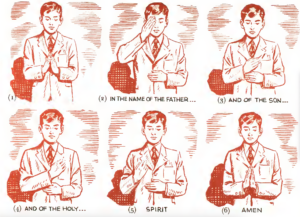
 First Sorrow: Mary Hears the prophecy of Simeon in the Temple
First Sorrow: Mary Hears the prophecy of Simeon in the Temple Second Sorrow: Mary flees with Joseph into Egypt to save Jesus
Second Sorrow: Mary flees with Joseph into Egypt to save Jesus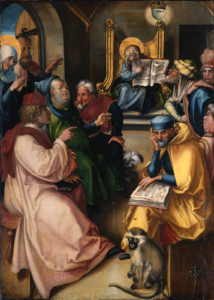 Third Sorrow: Mary loses Jesus and finds Him again in the Temple
Third Sorrow: Mary loses Jesus and finds Him again in the Temple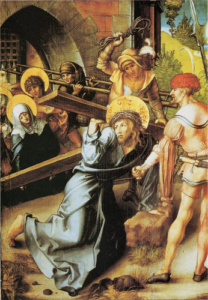 Fourth Sorrow: Mary meets Jesus carrying the cross on the way to Calvary
Fourth Sorrow: Mary meets Jesus carrying the cross on the way to Calvary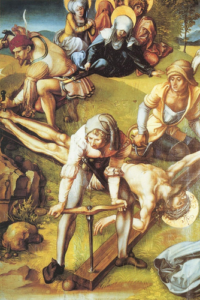 Fifth Sorrow: Mary is present at the Crucifixion and Death of Jesus
Fifth Sorrow: Mary is present at the Crucifixion and Death of Jesus Sixth Sorrow: Mary receives the dead body of Jesus in her arms
Sixth Sorrow: Mary receives the dead body of Jesus in her arms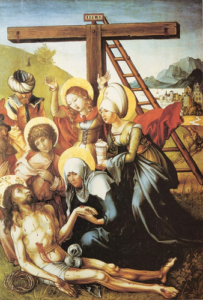 Seventh Sorrow: Mary accompanies Jesus to His Burial
Seventh Sorrow: Mary accompanies Jesus to His Burial
Great insights! For anyone looking to verify AI-generated content, the AI Checker Essay tool from tyy.AI Tools is a solid, reliable option worth checking out.
Trying out CK777plataforma’s platform. So far, so good. The interface is smooth, and the games load quickly. Let’s see if it pays out! Go to the plataforma: ck777plataforma
Honestly, 69win15 has been kinda quiet, but in a good way. Clean interface, no annoying pop-ups, just a decent place to play if you want a simple experience. : 69win15
Yo, just checked out k11betlogin. Seems like a decent spot to throw down some bets. Gonna give it a try and see if I can score some wins! Check it out for yourself k11betlogin
I’ve been playing zv777game for a few days now and I’m really enjoying it. A nice mix of classic and modern games, with new ones added frequently it seems. Solid choice! zv777game
Dice games are surprisingly complex – probability & strategy really matter! Seeing platforms like jkbose login embrace tech for smarter recommendations & fast processing is cool. Streamlined signup is a huge plus too! 👍